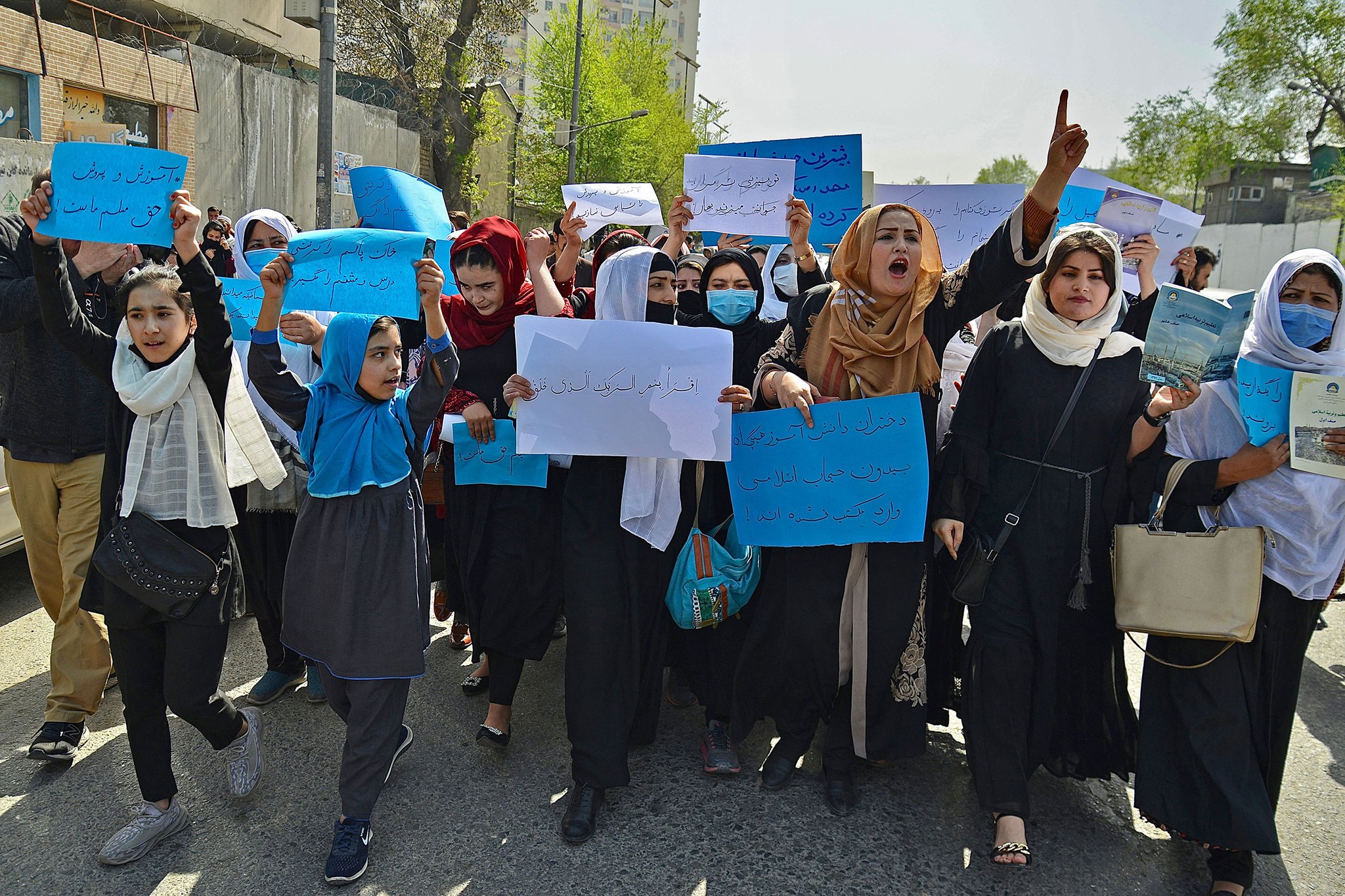This decision is the latest regressive move to severely restrict the freedoms of women in Afghanistan.
The Taliban prohibited women from working for national and international non-governmental organisations on Saturday, a move slammed by the United Nations Secretary-General António Guterres as ‘deeply-disturbing’.
The Taliban government in Afghanistan instructed all local and foreign non-governmental organisations (NGOs) to prevent female employees from coming to work, according to a letter by the Ministry of Economy sent to all licensed NGOs, citing alleged receipt of “serious complaints” about women’s dress code.
“Lately there have been serious complaints regarding not observing the Islamic hijab and other Islamic Emirate’s laws and regulations,” the letter said, adding that as a result “guidance is given to suspend work of all female employees of National and international non-governmental organisations,” according to reports.
Failure to comply will result in the licenses of those NGOs being revoked, the ministry said. The prohibition is the most recent setback for women’s rights under a Taliban government that seems to value eliminating women from public life.
The decision, according to the UN, jeopardises the operations of several groups working across Afghanistan to serve the most vulnerable, particularly women and girls.
It also said it would try to arrange a meeting with Taliban leadership to seek clarity on the matter.
The move represents a new development in the Taliban’s campaign to severely restrict the freedoms of Afghan women since its takeover in August 2021.
Reports of this latest restriction come less than a week after the Taliban declared that women’s right to education at universities in Afghanistan must be halted until further notice, prompting staunch condemnation from Qatar.
The move further ignited reported protests in some parts of Afghanistan.
More than 28 million Afghans, who need on humanitarian aid for survival, are being helped by the United Nations and its partners, including local and international NGOs, according to the statement by the UN spokesman Stéphane Dujarric.
“The effective delivery of humanitarian assistance requires full, safe and unhindered access for all aid workers, including women. The reported ban on women working with the international community to save lives and livelihoods in Afghanistan will cause further untold hardship on the people of Afghanistan,” the statement concluded.
UNICEF said the order was an “egregious rollback of rights for girls and women (that) will have sweeping consequences on the provision of health, nutrition and education services for children.”
Amnesty International urged for the ban to “be reversed immediately” and for the interim government of Afghanistan to “stop misusing their power.”
“Women and girls should not be punished for demanding and defending their fundamental rights,” it said in a statement. “The right to work for all people, especially women in Afghanistan, must be fully realized in accordance with international human rights law.”
Qatar’s role in Afghan women rights
The regression that was declared last week regarding a ban on women’s right to education at universities in Afghanistan was met with deep concern and disappointment in Doha.
In a televised news conference on Thursday, the Taliban’s minister of higher education claimed that they had barred women from attending institutions because they did not adhere to Islamic dress codes and other “Islamic standards,” arguing that female students travelled without a male guardian.
Qatar has been at the forefront of facilitating a communication portal with the Taliban and the United States since the takeover in 2021, in a bid to mediate the ongoing crisis.
Qatar’s Ministry of Foreign Affairs emphasised in a statement last week that these unfavourable actions will have a substantial effect on Afghanistan’s economy, growth, and human rights.
Doha also called on the interim government of Afghanistan to revisit its decision in compliance with the Islamic principles on women’s rights.
Girls have already been kept out of secondary schools since the Taliban returned to power last year, with the latest prohibition significantly restricting women’s access to education.
Doha has also been a safe space for Afghan student evacuees, including the all-girls robotics team the Afghan Dreamers, who are continuing their education in Qatar.
Meanwhile, the Qatar Afghan Scholarship Project was launched in September on the sidelines of the 77th United Nations General Assembly.
The launch marked the start of the 2022-2023 academic year, welcoming 250 Afghan students to more than 40 US colleges and universities on full scholarships in at least 17 states. Some of the educational institutions include Rutgers University, Bard College and the University of Texas.







